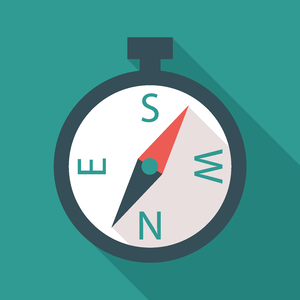IELTS General Writing Task 1 (Band Scores Explained)
Understanding how to get a high score in IELTS General Writing Task 1 can be difficult.
The best place to start is learning how the IELTS examiner decides on your score.
In this lesson, you’ll learn exactly what examiners look for and how to give them what they need.

Contents;
- Outline of Task 1
- Task Achievement
- Coherence and Cohesion
- Lexical Resource
- Grammatical Range and Accuracy
Outline of IELTS General Writing Task 1
The Question
In IELTS General Writing Task 1, you must always write a letter, and the question will look like this.

As you can see in the image above, the instructions are outside the box.
Inside the box, a situation is described, and three prompts at the bottom tell us what to say.
Sometimes, you need to write an informal letter to a friend and other times; you need to write a formal letter like in the question above.
The Scores
If you haven’t done the IELTS test before, you’ll find a helpful description here of the language ability required for each score.
The IELTS examiner uses this band descriptors document to determine your score for IELTS General Writing Task 1.

You’ll see that your score is based on 4 criteria, known as bands, and these are Task Achievement, Coherence and Cohesion, Lexical Resource and Grammatical Range and Accuracy.
The rest of this lesson explains what each band is and what you must do for a high score in each one.
Task Achievement for IELTS General Writing Task 1
Task Achievement is the score you are awarded based on how well you answered the question.
There are two main things you must do for a high Task Achievement score;

Respond to the Prompts
The question tells you exactly what to write about, and you mustn’t write about anything else.
Let’s look at each Task Achievement band score from 1 to 9 to understand how each is different for IELTS General Writing Task 1.
Band 1
Band 1 for Task Achievement is when the candidate wrote nothing on the answer sheet.
Band 2
Something has been written on the answer sheet, but not much.
Band 3
To get this score, the examiner would understand very little of the candidate’s writing.
Band 4
Band 4 is when the answer is completely irrelevant.

This typically happens when a candidate doesn’t understand the question.
Let’s look at a band 4 paragraph responding to the highlighted prompt in this question.

Band 4 Sample
I have shopped at your supermarket every weekend for the past 6 years as your prices are reasonable and I am satisfied with the range of products which you stock. But, unfortunately, last weekend, I was shocked by the rude language that one of your staff members used while speaking to me.
Comment:
This paragraph doesn’t respond to the prompt and is therefore completely irrelevant.
The prompt specifically says, “tell him/her why you were speaking with the employee,” but we still don’t have this information after reading the paragraph.

For a band 4 in Task Achievement, all of the paragraphs would be irrelevant, like the one above.
Band 5
To get a band 5 for Task Achievement, the candidate’s answer has one or more paragraphs like the band 4 sample above and one or more paragraphs like the band 6 sample below.
Band 6
For band 6, the candidate directly responds to the prompt, but none of the other sentences in the paragraph is relevant.
Let’s look at an example paragraph for the highlighted prompt below.

Band 6 Sample
Instead of answering my question, your employee just laughed at me. I am very upset by this rude behaviour, and I believe that I deserve more respect while shopping at your supermarket. Even if the employee couldn’t help me, they should at least have the decency to answer my question.
Comment:
This paragraph is supposed to be about the rude behaviour, but only the first sentence discusses this topic.
The rest of the paragraph is irrelevant as it describes the writer’s feelings about the behaviour.

To score a band 6, all of the paragraphs in the answer need to be like the sample above.
As you can see, to get a high Task Achievement score in IELTS General Writing Task 1, you must only write about what the prompt told you to write about.
Band 7
A band 7 answer has an appropriate response to each of the prompts, and all of these prompts are developed with some relevant information.
This time, we will look at a sample paragraph for the third prompt in the question below.

Band 7 Sample
I expect that you discipline this member of your team to some extent for the distress that he caused me. I don’t necessarily feel that it’s necessary for him to lose his job, but certainly, some action must be taken. Furthermore, if anything like this were to happen again, I would simply take my business elsewhere.
Comment:
This time, the prompt asks the candidate to say what they want the manager to do, and they have done this in the first two sentences.
However, the final sentence focuses on the writer’s own actions, so it is irrelevant.

If all the paragraphs in the essay have this amount of relevant information, that will result in a band 7 for Task Achievement.
Band 8
To score a band 8 in Task Achievement, we must have one or more paragraphs at the band 7 level seen above and one or more paragraphs at the band 9 level below.
Band 9
To score a band 9, each paragraph must respond directly to one of the prompts, and all of the development must be relevant.
Let’s look at a complete sample answer for this question.

Band 9 Sample
Dear Sir or Madam,
While at your supermarket last Tuesday, I was unable to reach a box of cereal from the top shelf, and there weren’t any staff members or other customers in the aisle who I could ask for help. For this reason, I asked for assistance from a female employee in the nearby bakery section of your supermarket.
This person’s response was incredibly inappropriate and is the reason I am writing this letter. At first, she stared into my eyes without saying anything, after which she laughed under her breath and walked away. At this point, she began pointing in my direction while whispering to another member of staff in the bakery.
I’m highly insulted by this conduct for obvious reasons, and I wish to be sent a letter of apology directly from that staff member. On that day, it seemed as though this was the only female employee in the bakery, which is why I’m confident that you will easily identify the person in question, and furthermore, I expect to hear from her within the next week.
Yours sincerely,
Lar Ryan
Comment:
As you can see, all the sentences in this answer discuss what the prompts said to discuss and nothing else.
Use the Appropriate Tone
Next, using the appropriate tone is essential in IELTS General Writing Task 1.
When writing to a friend, the tone must be informal, and when writing to anyone else, the tone must be formal.
Even if the content of the letter is suitable, including the inappropriate tone will result in a low Task Achievement score.

If there are many mistakes with the tone, that will result in a band 4 for Task Achievement, while some mistakes will result in a band 5, and even one mistake will result in a band 6.
To get a band 7, 8 or 9, the tone of the answer must be appropriate from start to finish.
Once the tone is perfect, bands 7, 8 and 9 for Task Achievement depend on the response to the prompts.
To see the difference between a formal and an informal tone, let’s look at two paragraphs with the same function; to explain why you can’t attend a party.
Formal Question

Formal Sample Paragraph
I must apologise as I am unable to attend your retirement party this weekend because my daughter has a basketball game in Dublin and I have already agreed to drive her and some of her teammates to the game. Unfortunately, I cannot find a replacement driver, which means that I must fulfil my obligation.
Informal Question

Informal Sample Paragraph
I’m really sorry, but I’m not going to make it to your birthday party this weekend because Jane has a game in Dublin and I said that I’d take her and a few of her teammates up there. I already tried to find someone else to drive them instead, but I couldn’t find anyone, so I have no choice but to go.
Coherence and Cohesion for IELTS General Writing Task 1
Coherence and Cohesion is the band score based on how easy it is to understand and follow an IELTS candidate’s writing.
You need to do several things correctly for a high Coherence and Cohesion score in IELTS General Writing Task 1.

The combined effect of the mistakes you make in the following areas will determine what score you receive.
Paragraphs
In the question, there are three prompts, and we write one paragraph for each one.
You can see the three prompts I’m referring to highlighted in this IELTS General Writing Task 1 question.

In each paragraph, focus completely on the prompt you’re writing about and don’t include any information that belongs to a different paragraph.
For example, in the question above, you shouldn’t say anything about the guidebook in your first paragraph because you need to discuss that in the second paragraph.
Keeping all the information organised in different paragraphs like this helps with your Coherence and Cohesion score.

Progression
Progression is related to the number of words you use to communicate each piece of information.
Each paragraph should be about 60 words long, and each sentence needs to lead logically from one to the next.
With each sentence, the examiner is expecting a new piece of information that pushes the paragraph forward.
That means that repeating the same idea or including unrelated information will reduce your Coherence and Cohesion score.

Let’s look at an example of poor and good progression for the first prompt in this question.

Poor Progression
Vietnam is the most beautiful country. All the places that I went to were stunning, and the scenery was incredible. I saw so many amazing things, and I really couldn’t believe my eyes with many of the sights that I saw there. The landscape was just out of this world.
Comment:
The first sentence communicates a piece of information, and the rest of the sentences just repeat that same piece of information.
Even though this one piece of information is described differently in each sentence, this is still considered to have poor progression.

Good Progression
I just got back from my trip to Paris, and it was as impressive as you described. I spent a lot of time visiting all the typical tourist attractions, which never failed to amaze me, and I also rambled around the back streets to see what other exciting things I might find. I must say, it’s definitely the most unique and fascinating place I’ve ever been.
Comment:
Here you can see that every sentence adds a new piece of information to the paragraph.
This is what you need to do in your answer.
Cohesive Devices
Cohesive devices are words that we use to help readers follow our writing and prevent them from getting lost or confused.
These are words such as; also, but, however, in contrast, for example and because.

See how the sentences below are easier to follow with the use of cohesive devices.
- I finished work. I went to the shop. I went home.
After I’d finished work, I went to the shop before going home. - I didn’t buy any milk. I didn’t have enough money.
I didn’t buy any milk because I didn’t have enough money. - I won’t have time this week. I will have time next week.
Unfortunately, I won’t have time this week; however, I will have time next week.
It’s essential to use cohesive devices like this for a high Coherence and Cohesion score in IELTS General Writing Task 1.
However, if we use too many cohesive devices, this can reduce our score but not using enough of them can reduce our score too.
The key is only to use them when they actually help the reader follow what we’ve written.

In addition, the cohesive devices we use must also be suitable for the tone of the letter we are writing.
For example, we cannot use formal cohesive devices in an informal letter.
Let’s look at the difference in the following paragraphs with the same function but a different tone.
Letter to a Friend

Informal Cohesive Devices
Your guidebook was very useful, too, especially because the list of translated phrases meant that I could interact with the locals. Also, one time, I got completely lost, and it wasn’t until I remembered the map in the guidebook that I found my way back to the hotel.
Letter to Your Manager

Formal Cohesive Devices
Furthermore, your guidebook was very useful, particularly as the list of translated phrases allowed me to interact with the locals. In addition, one time, I got completely lost, and it was only once I’d remembered the map in the guidebook that I found my way back to the hotel.
Check out the full list of cohesive devices in my lesson on formal and informal language.
Referencing and Substitution
You may not have heard the terms “referencing and substitution” before, but I’m quite sure that you’re doing some if not all of these things in your writing already.
The most common and most important aspect is the appropriate use of pronouns. For example;

Thanks for letting me borrow your guidebook.
The guidebookIt was very useful.
Another aspect is using the word ‘one’ to replace a noun. For example;
Thanks for letting me borrow your guidebook. I’ll definitely bring
aguidebookone on my holidays from now on.
The final aspect is omitting words when they’re not necessary. For example;
Thanks for letting me borrow your guidebook. It is the best
guidebookI’ve ever used.
Of the three above examples, pronouns are the most important for your Coherence and Cohesion score in IELTS General Writing Task 1.
Lexical Resource for IELTS General Writing Task 1
Lexical Resource is the score the examiner gives you based on the range and accuracy of your vocabulary.
Lexical Resource is scored in the exact same way for Task 1 and Task 2, so you should complete my Task 2 Lexical Resource lesson to understand this part of the test.
However, unlike Task 2, you need both formal and informal vocabulary for Task 1, which is why I have additional reading materials for you.
Grammatical Range and Accuracy for IELTS General Writing Task 1
This is the band score that focuses on your grammar.
Once again, the IELTS examiner uses the same criteria to assess your grammar in Task 1 and Task 2.
In fact, most IELTS candidates get the same Grammatical Range and Accuracy score for their Task 1 and Task 2 answers.

A common misconception is that you can do something special in the IELTS test to improve your IELTS grammar score, but really, the only option is to improve your grammar ability before the test.
In my Grammatical Range and Accuracy lesson, you’ll learn;
- how the examiner decides your score
- how to get the highest score with your current ability
- how to improve your grammar ability.
Also, IDP has a useful list of common grammar mistakes here.
What now?
While completing this lesson, you’ve likely realised that you have some weaknesses that you need to strengthen.
Working on these weaknesses is the best thing you can do to improve your scores.
If you’re unsure of your weaknesses or if you’d like my feedback on your writing, you’re welcome to sign up for the free Live Feedback Lessons below.
Besides that, you just need to complete my lesson on formal and informal language and then practice my Step by Step Strategy for IELTS General Writing Task 1. You can then compare your answers with my sample letters.
You can also review this lesson with the video below.

